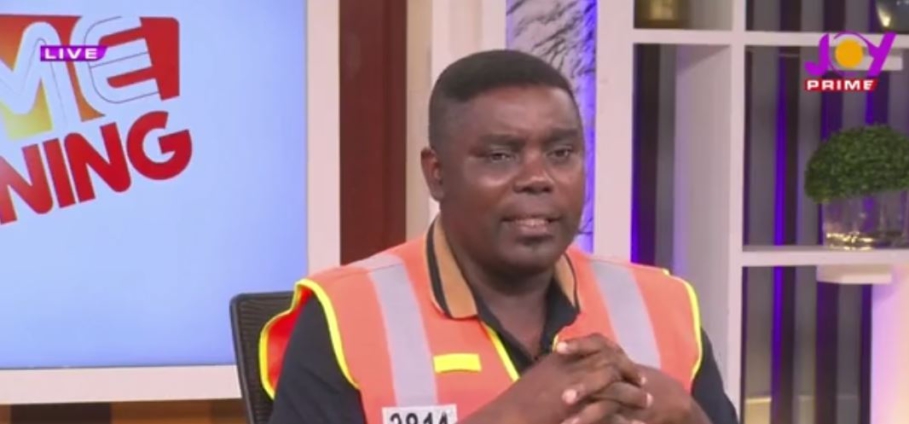The National Disaster Management Organisation (NADMO) has said adequate measures are being implemented to forestall any flooding catastrophe during the rainy season.
While embarking on public education and sensitisation programmes, the outfit says it will soon be inspecting flood-prone areas in the capital and other cities to reduce the impact of floods when the rains strike.
In an interview with JoyNews, the Communications Director for the Organisation, George Ayisi, added that some major drains have already been dredged as attempts are being made to identify safer places for stranded people.
“In partnership with the assemblies, some areas are dredged and anytime soon, maybe next week, the Director-General and the team will pay visit to some of the flood-prone areas to carry out inspections and see how prepared we are as far as the drains are concerned.
“There are some identified areas that we want to go. We identify safe havens where they can easily access and seek refuge till the rains are over because we know when the floods get there, it’s so dangerous and so that’s what we do,” he said.
On Sunday, April 3, some residents of Keta and Agavedzi in the Volta Region were displaced by tidal waves, leaving many homeless.
Some moved to higher grounds to seek shelter, while others had no choice but to sleep on mattresses along major roads.
In a related development, more than 3,000 persons were forced out of their homes after tidal waves swept through homes in the Ada East and West districts of the Greater Accra Region on Sunday.
Per reports received by NADMO, the disaster also destroyed more about 251 households in four communities, including Lolonya, Agblabanya and Anyamam.
These incidents have awakened the disaster management stakeholders to what is to come this rainy season.
The Meteorological Agency has warned there could be similar patterns to be expected.
But NADMO says the impacts can be mitigated if adequate measures are put in place by city authorities while the citizenry also takes the necessary precautions.
“…to take them out is sometimes difficult; relocation, evacuation and you need to get another place and that is central government’s responsibility.
“For now, we need to identify safe havens where they can seek refuge and then when the rains are down, they can go back,” George Ayisi added.
Latest Stories
-
World Bank’s food price index eases; maize, wheat prices hit 3-year low
33 mins -
2020 polls all about pulling Ghana back from precipice of destruction, corruption – Naana Jane
36 mins -
Guru expresses interest in contesting SRC election at UG
43 mins -
Oil prices projected to average $84 in 2024 – World Bank
53 mins -
Meet 2 Ghanaian entrepreneurs on a mission to connect 1m African professionals to global companies by 2034
1 hour -
NCA approves Starlink’s satellite broadband application
1 hour -
Government orders FGR to revamp mining operations; assures workers of commitment to their welfare
2 hours -
Arne Slot philosophy could suit Liverpool – Van Dijk
2 hours -
EC replies Mahama: You also appointed someone who was tagged NDC
2 hours -
See colourful outdoor of Prof Naana Opoku-Agyemang as NDC’s running mate
2 hours -
Akufo-Addo commissions 15MWP Kaleo Solar Power Plant
2 hours -
GCB Bank PLC leads African financial integration, hosts ZICB delegation
3 hours -
Empowering Girls in ICT: FAWE Ghana advocates for gender equality in the Tech sector
4 hours -
Rangnick ‘contacted by Bayern Munich’ about manager job
4 hours -
Winneba Youth Choir celebrates 35th Anniversary with Aseda Concert sponsored by Fidelity Bank
4 hours

